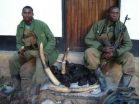(Press-News.org) LEXINGTON, Ky. (Feb. 26, 2013) — A new study authored by University of Kentucky researcher Elaine Wittenberg-Lyles shows that more empathic communication is needed between caregivers and hospice team members.
The study, published in Patient Education and Counseling, was done in collaboration with Debra Parker Oliver, professor in the University of Missouri Department of Family and Community Medicine. The team enrolled hospice family caregivers and interdisciplinary team members at two hospice agencies in the Midwestern United States.
Researchers analyzed the bi-weekly web-based videoconferences between family caregivers and their hospice teams. The authors coded the data using the Empathic Communication Coding System (ECCS) and identified themes within and among the coded data. The team reviewed 82 total meetings.
Overall, the researchers noted that members of the hospice team tended to react to caregiver empathic opportunities with a perfunctory response, implicit recognition, or simple acknowledgement as defined by the ECCS scale. Most caregiver statements were met with biomedical or procedural talk from the hospice team.
Few responses went beyond to offer confirmation with a positive remark to the caregiver, and even fewer provided a shared experience to address the caregivers' emotional needs.
Prior research has shown that a physician's expression of empathy positively influences the patient-physician relationship, but as this study shows, this is often not the norm. Other research shows that physicians tend to respond more to informational cues from patients than emotional cues, and often respond to patient concerns by turning the conversation to biomedical information or medical explanation, nonspecific acknowledgement or reassurance.
"This study shows the need for better empathic communication between caregivers and hospice team members," said Wittenberg-Lyles, who holds a joint appointment in the UK College of Communications and the UK Markey Cancer Center. "Improving communication about psychosocial issues, emotional losses and frustrations for the caregiver will lead to better patient-centered care for hospice patients and their families."
### END
Study shows need for improved empathic communication between hospice teams and caregivers
2013-03-01
ELSE PRESS RELEASES FROM THIS DATE:
New method for researching understudied malaria-spreading mosquitoes
2013-03-01
Researchers at the Johns Hopkins Malaria Research Institute have developed a new method for studying the complex molecular workings of Anopheles albimanus, an important but less studied spreader of human malaria. An. albimanus carries Plasmodium vivax, the primary cause of malaria in humans in South America and regions outside of Africa. Unlike Anopheles gambiae, the genome of the An. albimanus mosquito has not been sequenced and since these two species are evolutionarily divergent, the genome sequence of An. gambiae cannot serve as an appropriate reference. The researcher's ...
Nearly 1 in 4 women newly diagnosed with breast cancer
2013-03-01
A study by researchers at the Herbert Irving Comprehensive Cancer Center (HICCC) at NewYork-Presbyterian/Columbia University Medical Center, has found that nearly one in four women (23 percent) newly diagnosed with breast cancer reported symptoms consistent with post-traumatic stress disorder (PTSD) shortly after diagnosis, with increased risk among black and Asian women. The research has been e-published ahead of print in the Journal of the National Cancer Institute.
"This study is one of the first to evaluate the course of PTSD after a diagnosis of breast cancer," said ...
British Columbia traffic deaths could be cut in half
2013-03-01
A study by a Simon Fraser University researcher shows British Columbia has much higher traffic death rates than most northern European countries. Comparisons to the safest country, the Netherlands, suggest B.C. could reduce the number of traffic deaths by more than 200 per year.
It also found that fatality and injury risks varied by travel mode.
"Many studies have shown that overall, considering both potential physical activity benefits and injury risks, cycling and walking are on the whole very healthy travel activities," says SFU health sciences assistant professor ...
Mineral diversity clue to early Earth chemistry
2013-03-01
Washington, D.C.— Mineral evolution is a new way to look at our planet's history. It's the study of the increasing diversity and characteristics of Earth's near-surface minerals, from the dozen that arrived on interstellar dust particles when the Solar System was formed to the more than 4,700 types existing today. New research on a mineral called molybdenite by a team led by Robert Hazen at Carnegie's Geophysical Laboratory provides important new insights about the changing chemistry of our planet as a result of geological and biological processes.
The work is published ...
CETS offers new method to help simplify the study of brain pathologies
2013-03-01
Scientists from the Johns Hopkins University School of Medicine in Baltimore, MD have developed a new way to identify heterogeneous brain cells by looking at epigenetic variation (the heritable alterations in gene expression caused by mechanisms other than changes in DNA sequence). With this publicly available new method (named "CETS"), it will be possible to generate neuronal profiles from DNA methylation data, which will simplify the study of several brain pathologies, including depression and age-associated disorders. The study, titled "A cell epigenotype specific model ...
Third radiation belt discovered with UNH-led instrument suite
2013-03-01
DURHAM, N.H. – Although scientists involved in NASA's Van Allen Probes mission were confident they would eventually be able to rewrite the textbook on Earth's twin radiation belts, getting material for the new edition just two days after launch was surprising, momentous, and gratifying.
The Radiation Belt Storm Probes mission, subsequently renamed in honor of the belts' discoverer, astrophysicist James Van Allen, was launched in the pre-dawn hours of August 30, 2012. Shortly thereafter, and well ahead of schedule in normal operational protocol, mission scientists turned ...
Adult sleepwalking is serious condition that impacts health-related quality of life
2013-03-01
DARIEN, IL – A new study found that adult sleepwalking is a potentially serious condition that may induce violent behaviors and affect health-related quality of life.
"We found a higher frequency of daytime sleepiness, fatigue, insomnia, depressive and anxiety symptoms and altered quality of life in patients with sleepwalking compared to the control group," said Yves Dauvilliers, MD, PhD, the study's principal investigator and lead author. Dr. Dauvilliers is professor of physiology and neurology and director of the sleep lab at Gui-de-Chauliac Hospital in Montpellier, ...
Elephants are vanishing from DRC's best-run reserve
2013-03-01
NEW YORK (Feb. 28, 2013) — The Democratic Republic of Congo's (DRC) largest remaining forest elephant population, located in the Okapi Faunal Reserve (OFR), has declined by 37 percent in the last five years, with only 1,700 elephants now remaining, according to wildlife surveys by WCS and DRC officials. WCS scientists warn that if poaching of forest elephants in DRC continues unabated, the species could be nearly extinguished from Africa's second largest country within ten years.
According to the latest survey, 5,100, or 75 percent, of the reserve's elephants have been ...
New model could lead to improved treatment for early stage Alzheimer's
2013-03-01
GAINESVILLE, Fla. — Researchers at the University of Florida and The Johns Hopkins University have developed a line of genetically altered mice that model the earliest stages of Alzheimer's disease. This model may help scientists identify new therapies to provide relief to patients who are beginning to experience symptoms.
The researchers report their findings in the current issue of The Journal of Neuroscience.
"The development of this model could help scientists identify new ways to enhance brain function in patients in the early stages of the disease," said David ...
Research unearths new dinosaur species
2013-03-01
RAPID CITY, S.D. (Feb. 28, 2013) – A South Dakota School of Mines & Technology assistant professor and his team have discovered a new species of herbivorous dinosaur and published the first fossil evidence of prehistoric crocodyliforms feeding on small dinosaurs.
Research by Clint Boyd, Ph.D., provides the first definitive evidence that plant-eating baby ornithopod dinosaurs were a food of choice for the crocodyliform, a now extinct relative of the crocodile family. While conducting their research, the team also discovered that this dinosaur prey was a previously unrecognized ...

